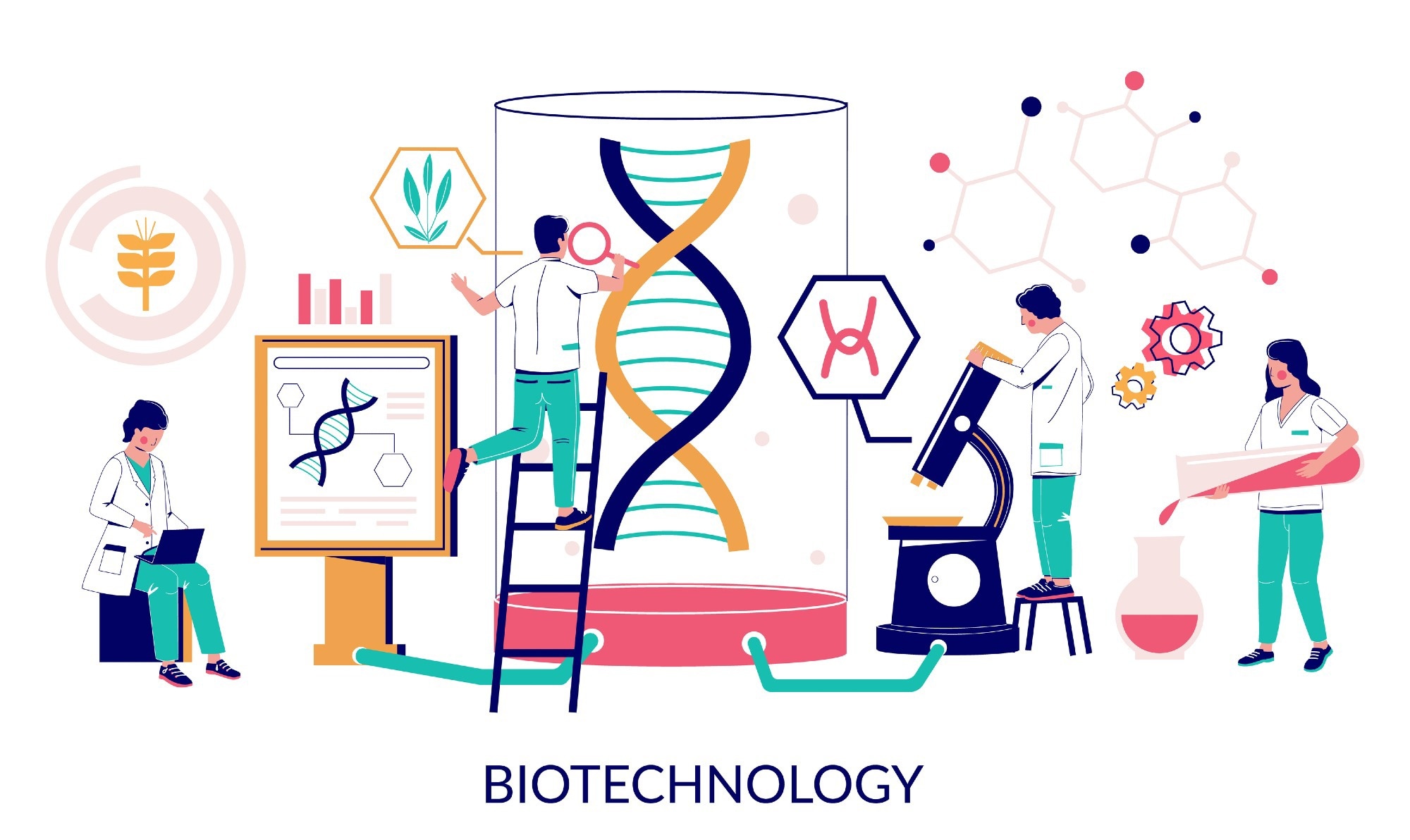In recent years, biotechnology has emerged as a vitally important field of science. Out of this sector, an increasing number of innovations are being used to solve important challenges in areas from medicine to climate change. The COVID-19 pandemic had the effect of highlighting the increasing importance biotechnology plays in our lives.

Image Credit: Siberian Art/Shutterstock.com
Biotechnology was the subject of household discussions for the first time, with vaccine development and gene sequencing techniques playing an essential role in the fight against COVID-19. Here, we look at the importance of patents in biotechnology, which essentially drive innovation in the field, helping us to solve more and more of the big challenges currently facing our societies today.
Why is biotechnology important?
Biotechnology has been important for generating scientific breakthroughs and technologies for treating rare diseases, tackling climate change, addressing the food crisis, furthering the use of clean energy, and cleaning up the industrial manufacturing process.
While biotechnology seems like a new field of science, humans, in fact, have been leveraging biological processes for their own purposes for millennia. For example, there is evidence of microorganisms being used for over 6,000 years to produce useful food products.
More recently, the COVID-19 pandemic has highlighted how important biotechnology is to solving humankind's most imminent and threatening challenges. Biotechnology has allowed for the development of synthetic DNA, which was incredibly important in genomic investigations of the virus at the route of COVID-19. Knowledge acquired via synthetic DNA helped the world track and understand the spread and evolution of the disease and underlying virus.
Next, biotechnology was leveraged to produce effective and safe vaccines for the novel disease rapidly. Biotechnology scientists have developed a new approach to vaccine development, increasing the manufacturing yields of protein-based vaccinations, thereby increasing global access to potentially life-saving vaccinations.
Biotechnology also proved fundamental in facilitating the tracking and tracing of the disease, which helps protect people from exposure to the virus, thus decelerating the spread of the disease in an attempt to get the pandemic under control. With biotechnology, scientists overcame the limitations of standard clinical testing methods that often produce inaccurate results, leading to false-negative readings. Researchers at the University of New Mexico successfully designed a chip to make genome sequencing for viruses easier and faster, and this technology was used to help track and trace COVID-19.
Outside of COVID-19, biotechnology has recently been making headlines for furthering gene editing and gene sequencing advances. To technologies that are and will continue to be vitally important in establishing novel therapeutics and more accurate diagnostics for a wide range of diseases, including rare diseases for which there are currently no disease-modifying treatments or cures available.
How patents help drive innovation in biotechnology
Biotechnology heavily relies on research, which is expensive due to the extensive research time involved and the requirement of costly technologies and highly trained staff members. As a result, companies in the field of biotechnology are investing an average of 40-50% of their revenues into research and development (compared to the typical 13% invested by pharmaceutical companies). Patents, therefore, are important as they secure a source of revenue to fuel research and development, which leads to further breakthroughs in biotechnology.
They also strengthen the position of the biotechnology companies who own the patent; scientists working for these companies are encouraged to continue their research which has garnered successful results and has secured funding for future research. Biotechnology products with patents approaching the end of their patent period have the most value, and these patents are usually thoroughly supported by numerous clinical trials, have received regulatory approval, and have entered the market.
By this point, they have also likely gained public acceptance too. The revenue generated from these patented goods can all be reinvested into research and development to produce more innovative products that can help solve science's most pressing challenges.
Additionally, patents encourage future innovations by sharing scientific developments with the field, allowing researchers to learn from the work of other teams inexpensively. With patents, scientists do not have to carry out the entire research process by themselves; they can use the learnings of other teams as a jumping-off point, which helps to propel scientific development and innovation. In this way, patents are analogous to scientific journals, where knowledge becomes open-access, and researchers who may not have the funding to have conducted a particular part of research themselves can still benefit from its learnings.

Image Credit: eamesBot/Shutterstock.com
Future outlook
Innovations in the field of biotechnology will likely continue to accelerate in the coming years. In particular, we can expect novel therapeutics to provide cures and disease-modifying therapies for several diseases. Additionally, we can expect biotechnology to continue to play an important role in preventing pandemics via tracking and tracing, vaccine development, and medicine development.
Sources:
- Padmanabhan Nair, V., Liu, H., Ciceri, G., Jungverdorben, J., Frishman, G., Tchieu, J., Cederquist, G., Rothenaigner, I., Schorpp, K., Klepper, L., Walsh, R., Kim, T., Cornacchia, D., Ruepp, A., Mayer, J., Hadian, K., Frishman, D., Studer, L. and Vincendeau, M., 2021. Activation of HERV-K(HML-2) disrupts cortical patterning and neuronal differentiation by increasing NTRK3. Cell Stem Cell, 28(9), pp.1566-1581.e8. www.sciencedirect.com/.../S1934590921001661?via%3Dihub
- Pagliusi, S., Jarrett, S., Hayman, B., Kreysa, U., Prasad, S., Reers, M., Hong Thai, P., Wu, K., Zhang, Y., Baek, Y., Kumar, A., Evtushenko, A., Jadhav, S., Meng, W., Dat, D., Huang, W. and Desai, S., 2020. Emerging manufacturers engagements in the COVID −19 vaccine research, development and supply. Vaccine, 38(34), pp.5418-5423. https://www.sciencedirect.com/science/article/pii/S0264410X20307957
- Waheed, A. and Shafi, J., 2020. Successful Role of Smart Technology to Combat COVID-19. 2020 Fourth International Conference on I-SMAC (IoT in Social, Mobile, Analytics and Cloud) (I-SMAC),. https://ieeexplore.ieee.org/abstract/document/9243444
Further Reading